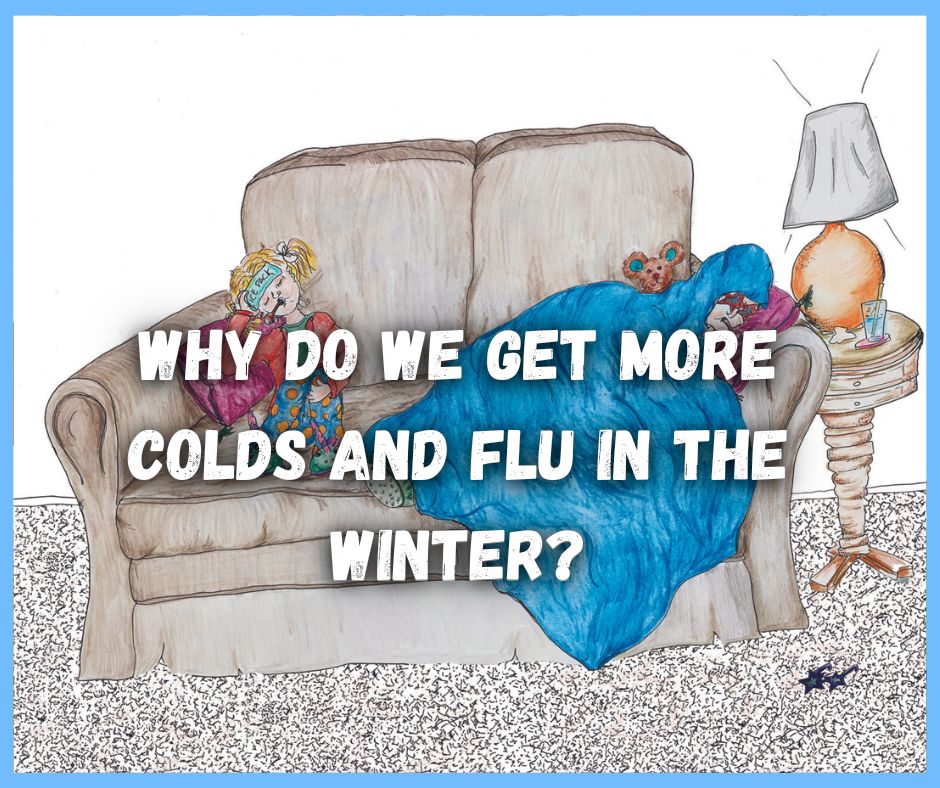steve's blog
Why Do We Get More Colds And Flu In The Winter?
Why Do We Get More Colds And Flu In The Winter?
It’s not a complete myth when a grandma says you’re going to get sick if you go out in the cold. Cold winter weather doesn’t cause colds or illness but it may make the germs that cause illness easier to catch in several ways. In fact, it is thought that “influenza” may be a reference to its original Italian name, influenza di freddo or “influence of the cold”.
In cold weather we tend to spend more time indoors, with windows closed & often in close proximity with others. Close proximity & less air exchange means a greater likelihood of spreading germs. This is made even more likely as people gather in greater numbers indoors during the holiday season.
In addition, shorter days & less time out in sunlight decrease our ability to produce vitamin D & melatonin, both of which strengthen our immune systems ability to fight infection.
One of the more interesting discoveries about the flu virus & rhinoviruses (which cause over 1/2 of all colds) is that in temperate climates, these viruses are transmitted better at low temperatures and dry conditions (think winter air) than at high temperatures and more humid conditions. That appears to be because they both survive longer in cold, dry conditions AND replicate faster in nasal tissue cooled below normal body temperature. Studies suggests that the coating of a flu virus becomes tougher at temperatures close to freezing, making them more active, more resilient, and easier to transmit in the winter.
Being outside in cold weather inhibits the ability of mucus and nasal hairs to push disease agents out of our noses. There is also evidence that exposure of airway cells to very cold air may decrease their immune response, possibly by constricting/narrowing blood vessels in these tissues, slowing delivery of infection fighting white blood cells.
Cold air holds less moisture. Even though heating indoors warms the air it doesn’t add moisture &, in fact, increased evaporation in the warmer air may contribute to drier nasal tissue allowing viruses to be more easily transmitted thru nasal passages.
Our book includes ideas about what we can do to prevent getting or giving the flu. The above information suggests additional things we can do, such as:
-Taking vitamin D supplements or eating foods that are high in vitamin D, such as fatty fish, mushrooms, and eggs
-Keeping well hydrated & using saline nasal gel or sprays
-Installing a single-room or whole-home humidifier
-covering the nose & mouth with a scarf or even a respirator mask when out in very cold air.
-listening to our grandmothers!

